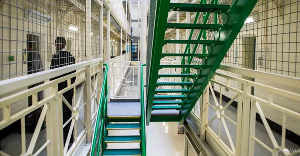Accra, Sept. 21, GNA - Ghana's ecological regions have been divided into 12 from a previous six due to rapid changes in land use, two researchers announced in Accra on Friday.
The research conducted by Albert Allotey, Department of Geography and Resource Development, University of Ghana and Emmanuel Techie-Obeng, Senior Programme Officer of the Environmental Protection Agency (EPA) said with the fast degradation in the ecological system of the country the six zones were no longer viable.
The original zones were the Deciduous Forest, Semi-Deciduous Forest, the Coastal Savannah, Sudan Savannah, Guinea Savannah and the Transitional Zone.
The names of the 12 new ones would be agreed to by a team of experts meeting in Accra to discuss the research and make recommendations to government.
Presenting the findings to Journalists in Accra on Friday, the two researchers said the re-zoning was as a result of a tentative study of the topography of Ghana over the past thirty years.
Mr Allotey disclosed that the study, which was collaboration between AGRHMET a Regional Training Centre in Niger and the U.S Geological survey, used satellite imagery and fieldwork to monitor the changes in the ecological regions.
Mr Emmanuel Techie-Obeng said that the study found that Ghana's ecological zones had undergone several changes between the period 1972 and the year 2000.
He said the results aggregated to the national level showed a moderate change with an increase in the Savannah from 55 percent to 58 percent. The results further indicated that cropland had expanded marginally from 18 percent to 26.2 percent with a decline in the forestland from 23 percent to 10.2 percent.
The new zones are the Akwapim Togo Mountains, Closed Guinea Savannah, Coastal Savannah, Closed Sudan Savannah, Central Transitional Zone and the Deciduous Forest.
The rest include Eastern Sudan Savannah, Eastern Traditional Zone, Main Transitional Zone, Open Guinea Savannah, the Rain Forest and the Western Sudan Savannah.
Mr Techie-Obeng noted that there was the need to mainstream environmental issues by providing logistics to support natural resources and environment organisations so as to develop models to reverse degradation trends.
He said inappropriate farming practices, rapid increase of surface mining, mass exploitation of timber in burned forest reserves especially in the 1990s and illegal exploitation of resources among many other factors had over the years been the cause of degradation in the country.
Mr Gray Tappan, Geologist with the U.S Geological Survey presenting an overview of ecological Land use Land cover said his studies on the Environment of Senegal and Niger revealed that Niger had made improvement in their forest Reserves. He said Ghana could make progress if government paid attention to recommendations made by the research's findings. 21 Sept. 07
General News of Friday, 21 September 2007
Source: GNA












